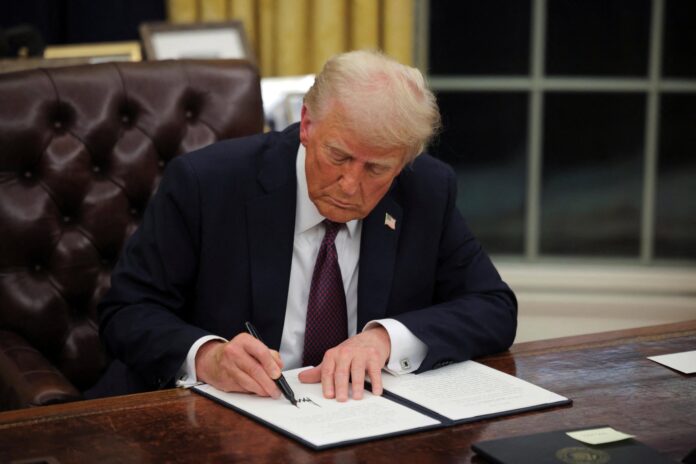President Donald J. Trump has reinstated and expanded his controversial travel ban, citing national security threats, high visa overstay rates, and terrorism risks.
The move, formalized through a new Proclamation under Executive Order 14161, restricts or limits entry into the United States from 19 countries.
Twelve nations — including Afghanistan, Iran, Somalia, and Haiti — face a full suspension of entry for their nationals, while seven others, including Cuba, Venezuela, and Laos, face partial restrictions.
The administration justifies the ban on grounds ranging from lack of proper vetting processes to failure to cooperate with U.S. immigration enforcement.
“The President’s sacred duty is to protect Americans from threats at our borders,” read a White House statement.
Trump echoed this sentiment, saying: “We will restore the travel ban — some call it the Trump Travel Ban — and keep radical Islamic terrorists out of our country.”
The Proclamation cites alarming visa overstay rates. Chad recorded a 49.54% overstay for business/tourist visas, while Equatorial Guinea topped the charts with a staggering 70.18% overstay rate in education-related visas. Several countries also reportedly refused to take back deported nationals.
Iran and Cuba were labelled state sponsors of terrorism. Somalia and Yemen were flagged as territories lacking stable governments, making vetting “nearly impossible,” according to U.S. officials.
Critics say the ban disproportionately affects African, Middle Eastern, and Caribbean nations, reviving concerns over discrimination and immigration fairness. Advocacy groups have already begun mounting legal challenges.
The new Proclamation does include exemptions for lawful permanent residents and certain visa categories, but its sweeping nature has reignited global debate over U.S. immigration policy and the balance between security and openness.
This order updates and expands the Trump-era travel ban first upheld by the U.S. Supreme Court in 2018.



















